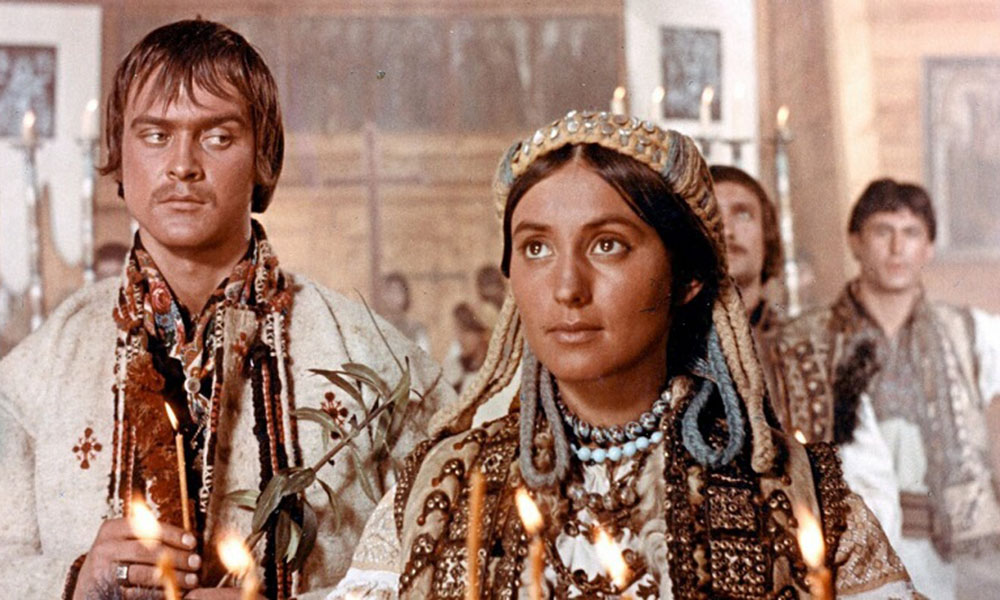06/02/2023

International Conference
13-14 July, 2023, IFILNOVA / NOVA University Lisbon (Portugal)
Despite having developed under Russia for most of its history (before, during and after the Soviet period), Ukrainian cinema has always claimed its artistic, cultural, and political singularity. Not only has it developed a particular filmic language of its own, but it also set up a powerful tool for political and artistic resistance against the misrepresentation, silencing and censorship of their cultural identity by the imperialist discourse of the Soviets and the Russians. Since the declaration of independence in 1991, the new wave of rehabilitation of the national cultural memory and heritage tarnished by Russian narratives based on military and informational aggression, began in Ukrainian cinema (Thompson 2000). Many contemporary Ukrainian films reflect on the post-totalitarian national history and the “transitional state” of Ukrainian culture (Hundorova) as a postcolonial phenomenon. Since the Russian invasion of Ukraine in 2014, Ukrainian cinema has been considered the second front that has not come to a total halt even after the major escalation in 2022.
The aim of this conference is to reconsider the artistic, cultural, and political agencies of Ukrainian cinema throughout its history and in light of the recent political developments and the ongoing Russian-Ukrainian war. Possible topics include, but are not limited to:
- Ukrainian national cinema as a cultural phenomenon: history, representatives, perspectives;
- Postcolonial discourse in Ukrainian filmmaking and its theorization;
- Cultural resistance in and through films;
- Constructing, representing, and performing cultural trauma through filmic
experience; - Historical, collective, and cultural memory in Ukrainian cinematography;
- The Russian-Ukrainian war in cinema of 2014-2022;
- Modern tendencies in Ukrainian cinema and in cinema about Ukraine;
- Male and female, colonial and/or imperialist gaze in Ukrainian and foreign
cinema.
Contributions to the conference may be of several formats.
- Individual presentations (30 minutes)
If you would like to propose an individual paper, please send a 300-word (max) description of the paper itself; and a short 200-word biography;
- Workshops (2 hours)
If you would like to propose a workshop, please send a 500-word description including the theme and scope of the workshop, the required material (bibliography and filmography); and 200-word biographies of the conductor(s);
- Film Screenings
If you would like to propose a screening, please send a 300-word (max) description of the work; a link to the screener of the film with total running time; and a 200-word biography of the filmmaker.
Conference language: English.
Some of the contributions will be published in the special issue of Cinema. Journal of Philosophy and The Moving Image – an international refereed journal dedicated to the philosophical investigation of cinema.
Concept and organization: Mariia Lihus (NAuKMA, Ukraine; IFILNOVA, Portugal): mariialihus@fcsh.unl.pt, Stefanie Baumann (IFILNOVA, Portugal): stefanie.baumann@gmail.com.
The conference is organized by the Laboratory of Cinema & Philosophy (CineLab) research within the NOVA Institute of Philosophy (IFILNOVA) at the Faculty of Social Sciences and Humanities, NOVA University Lisbon, Portugal.
Please submit your proposals to mariialihus@fcsh.unl.pt by March 20, 2023.
References:
Hundorova Tamara. Transit Culture. Symptoms of Postcolonial Trauma. Hrani-T, 2013.
Thompson Eva. Imperial Knowledge: Russian Literature and Colonialism. Greenwood, 2000.

